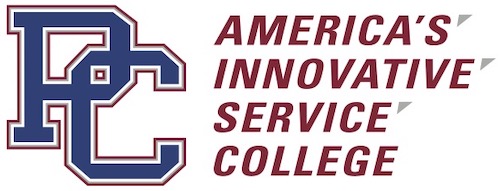Presbyterian College adding criminal justice minor this fall

Justice is being served at Presbyterian College, where officials announced this summer that students may now minor in criminal justice.
Responding to the demand for additional courses in the criminal justice field, two PC professors are taking a very interdisciplinary approach to appeal to students’ interests and needs.
Sociology professor Dr. Carla Alphonso and political science professor Dr. Erin McAdams regularly teach separate criminal justice classes in their disciplines, and, for many students, the classes satisfy their interests. But not for students pursuing careers in criminal justice who want to learn and experience more.
“We have students pursuing criminal justice career paths but who would like more courses specific to this area and in a formal, structured program instead of just some courses that randomly appear on their transcripts,” Alphonso said. “The minor provides a more coherent framework for students but also for future grad programs and employers who are looking for specific coursework and experiences.”
The minor requires 19 credit hours, including required courses in the U.S. criminal justice system, criminology, professional ethics, and an internship of at least one credit hour. Students will also be offered elective courses in forensics, computer security, legal studies, and more.
The new minor, said McAdams, is fertile ground for innovation between academic departments.
“This is truly interdisciplinary,” she said. “The minor covers the Humanities, such as philosophy and ethics, Social Sciences, including political science, psychology and sociology, and Natural Sciences with forensic chemistry. We also have a computer science class on computer security, so students who are really interested in cybersecurity can major in computer science and minor in criminal justice to get the education they need to pursue that career path.”
In addition to pursuing careers in law enforcement or corrections, PC students might use the minor to jump-start careers in various related fields, said McAdams.
“Rather than being a concentration within a specific major, the criminal justice minor is an interdisciplinary minor that allows students to major in anything to tailor their education to their career goals,” she said. “Of course, many students who want to go into law enforcement will major in sociology or political science here. But if you want to be a forensic psychologist, you can major in psychology and minor in criminal justice. If you want to do forensics and DNA testing, you can be a chemistry major with a criminal justice minor. There are so many possibilities.”
The required internship, said Alphonso, is also a key component for the new minor.
“The internship will give students a real-world experiential component that reinforces and strengthens their classroom learning and may open pathways for future job opportunities,” she said. “Students may intern with campus police, as well as local town police and county sheriff’s departments, or state agencies like the Department of Juvenile Justice.”
In addition to the internship and required criminology and law courses, students who minor in criminal justice must also take a class in professional ethics. This requirement remains true to PC’s purpose and history, McAdams said.
“In any position or any job related to criminal justice, the question, ‘what is justice?’ is raised,” she said. “I think that’s very true to our heritage as Presbyterian College – to think about ethical situations and to make sure our students’ moral compass is pointed in the right direction. I really appreciate that ethics is part of this curriculum, too. We’re not just training people for a particular career. Of course, they’re well-trained for professions, but we’re developing the whole student, including their morals.”
Admittedly, the new criminal justice minor also excites its professors. Alphonso, who has been teaching a criminology course through the sociology department since 2017, took some graduate courses on race and research methods related to crime but later focused her academic career on family sociology, aging, and gender.
However, Alphonso’s students at PC have renewed her interest in the field.
“Due to student interest a few years ago, I had the opportunity to rediscover criminology as an academic area and have been ‘all in’ ever since,” she said. “Personally, like many, I have long had an interest in the area due to our culture’s fascination with crime and criminality.
“I love all the TV shows, movies, and books that involve a good mystery or social and psychological profiles of criminal behavior. Being able to combine that interest with criminological theories and research methods and tools of data analysis from the social sciences proves to be an enriching experience for students. In recent semesters, I have had students perform their own original content analysis of crime as depicted in our pop culture and media, which is fun for students but also increases their skill set as they learn about and gain first-hand experience with the content analysis research method.”
McAdams, who teaches a constitutional law class in political science, said PC’s interdisciplinary approach to the new minor perfectly fits the college’s academic culture and strategic plan.
“We already have students who are interested in minoring in criminal justice but we also have colleagues who are excited who are saying, ‘Let’s get creative about what we can do,'” she said.
